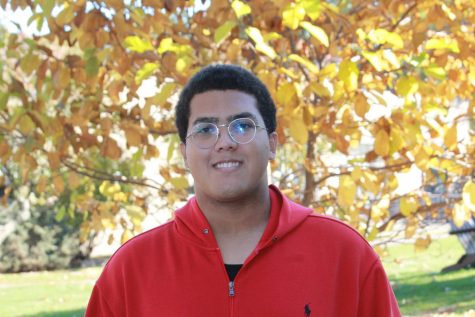Senioritis isn’t just a pattern- it shows what’s wrong with modern education
January 21, 2022
As the first semester draws to a close, the teachers and advisors of seniors prepare to warn the Class of 2022 about the plague of senioritis that threatens to wreak havoc on their grades and waning motivation.
Truthfully, though, that’s an exaggeration of the graveness actually attributed to the second semester. Karin Tucker, Associate Director of College Counseling, said, “After applications are in, students rarely drop off more than a couple percentile points, like going from an A to an A-. The only students to see a real drop in their grades are those who have something personally affecting happen during the second semester, and it’s not like that’s anything to do with the second semester.”
Some students might skip a boring class, maybe even two in one day if they feel like rolling the dice, but senioritis really isn’t that big of a deal. So, why talk about it?
Because senioritis is representative of something bigger: the leeching of school on the work-life dichotomy.
In talking to several staff members at the school who witness first-hand the development of students from their early years as underclassmen to their journey heading off to college, I’ve seen a common trend. All of them talked about the work-life balance that’s essential to school and the future world of work.
“High school is when you’re supposed to learn how to balance the things you have to do with the things you want to do,” said Eric Shear, Science teacher and Dean of the class of 2021. But oftentimes, students just throw themselves entirely into their work, with the promise that they get to throw back and relax later on. Sometimes you need to push through your work, but there are many students who live within the crunch 24/7.
You know them. You might even be them. Constantly working takes its toll on the human psyche- stress, anxiety and exhaustion are often associated with large workloads managed without attention to free time. And that’s not accounting for the longer lasting patterns of overworking yourself, or the crushing awareness that you’re burning the candle at both ends.
But if students know that they’re doing this themselves, hurting themselves in pursuit of a dream, why can’t they change their methods? Because of how much the typical American school system supports that kind of grind, both on a psychological and actual level.
There’s something addictive about receiving an A on a test you studied hard for- and that’s likely by design. Research into the matter of academic reinforcement, the matter of how you can get students to do their work, indicates that the verbal praise and tangible reward of getting an A and a compliment from a teacher is an intentional technique.
And then, the promise of getting into a quality college further pushes students to pursue that cycle of constant work leading into praise. Eventually, that pattern proves itself to only be a temporary pleasure with too little reward for too much risk. But it’s too late to drop out of it now, since that promise of college means the consequences of failing a class are all too real.
So, what is the solution to this burnout? It’s a dangerous cycle that, while well documented, hasn’t been acted against at this point within the American education system. It obviously falls upon the academic administrations throughout the United States, but what should they do? They need to test whatever approaches are feasible relentlessly. They need to try, try, try.
Several schools have attempted alternative education systems, and some of them have found massive success. But the only way change can be found is through testing new methods. It might be inconvenient, but if students are able to live a chill, senioritis ridden life, then it’ll be for the better.



